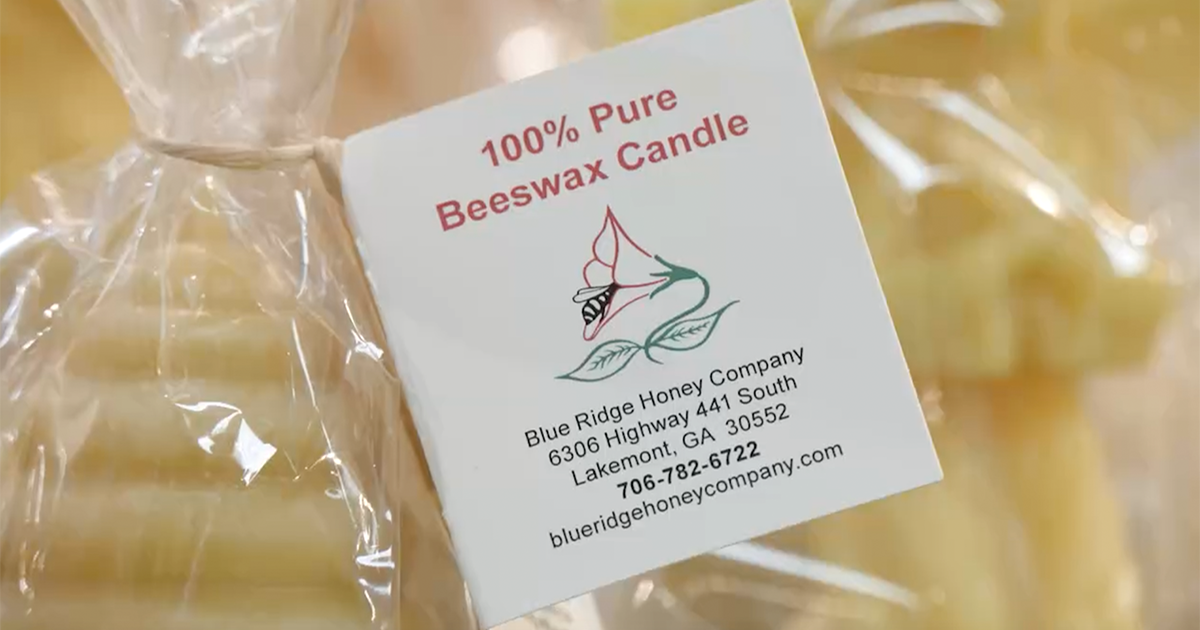Lakemont, GA |
There’s plenty of buzz surrounding the Blue Ridge Honey Company, where people can find candles, soaps, equipment, and, of course, honey. It’s a business started up by the husband-and-wife team of Bob and Suzette Binnie after getting into the bee industry in a unique fashion.
“I read a book. I read a book honestly. Got real interested just by reading. I’m one of those rare people that read a book, thought I would really enjoy it, and decided I wanted to be a commercial beekeeper before I even stuck a finger in a beehive. Most people think it sounds romantic and wonderful and fun, and then once they try to make a living at it, they find out this is actually really hard work. And, of course, you get stung along the way from time to time,” says Bob Binnie, Owner of Blue Ridge Honey Company.
That passion for honey is readily apparent as soon as you walk in the doors, as it highlights a number of different varieties from all around the country.
“It’s a honey shop. That’s the main thing. At any given time, we might have six, eight, occasionally ten different types of honey not only from our own locality but other states and other parts of Georgia. When people come here, they’re happy. You can just see when they walk into the door, they kind of ohh and aww, and they’re happy. Even the people that work here will tell you it’s really fun to see the looks on people’s faces when they get to taste all the honey and see all the variety of stuff we have in here. So, it’s just fun,” says Binnie.
Just like flowers, no two honeys are the same, as each has its own unique taste and consistency.
“Honeys that are high in dextrose have a sweet taste on your tongue, but they also have a characteristic of crystalizing quicker than the others. Honeys that are very low in dextrose and higher in fructose do not ever crystalize and they also have a mellower, sweet taste. A lot of people walk into the store figuring that honey is honey. It should all taste the same. Every single flower on the planet produces different tasting nectar,” says Binnie.
However, that’s far from the only product showcasing the diversity of this industry, as this operation produces a number of soaps in-house to go along with all their other bee-related products.
“If you look around the store, ninety-five percent of what’s in this building is bee-related. The soap has bee’s wax or propolis in it. We have pollen and honey. You see all the health products right there. They’re all bee-related, and that’s kind of our theme in here. We’re becoming a destination for tourists because the word’s gotten out that it’s an interesting place to visit. You can look right through those plate glass windows into the processing rooms, and people find that fascinating,” says Binnie.
However, the most important section of the store might just be this one, as it highlights the importance of bees to not just the agricultural industry but also people’s everyday lives.
“Well, the bees are extremely important. People don’t realize how important they are to our food industry. Things like apples, melons, cucumbers, the list just goes on and on and on,” says Binnie.
By: Damon Jones

